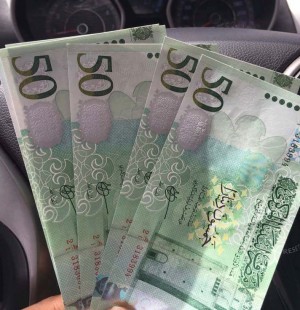By Sami Zaptia.

London, 7 June 2016:
The Beida-based Central Bank of Libya (CBL) revealed today that it had yesterday supplied a shipment . . .[restrict]of LD 50 million of the newly printed ‘‘Russian’’ bank notes to the Tripoli-based CBL. It said that the money would be distributed amongst commercial banks in the west.
CBL-Beida assured in its statement that further consignments of newly-printed money will be arriving from overseas. This, together with other measures taken by the CBL board (such as the increased use of debit cards and Point of Sale systems), would alleviate the current cash crises that Libyan banks are experiencing, it added.
It will be recalled that there was much politicking between the Tripoli and Beida-based CBLs as both vied for political supremacy and legitimacy which was brought to a head by the revelation that Beida CBL had printed its own money.
The Beida CBL was, it will be recalled, the only de jure body, representing the legitimate and internationally recognized parliament (the House of Representatives) and its Abdullah Thinni government after the militia coup on Tripoli in the summer of 2014.
However, since Libya’s oil money is channeled through historic contracts through the Tripoli CBL, the Tripoli branch was in real terms the de facto CBL of Libya. Beida had to rely on Tripoli to supply it with money, which Beida complained it did not. Tripoli claimed it acted apolitically. The shortage of money forced Beida to print its own new money in Russia, bypassing Tripoli and exacerbating the political split between west and east Libya, threatening to officially split the country.
As of 2016, however, the international community through the UN-brokered December 2015 Libyan Political Agreement (LPA), switched recognition to the new Presidency Council/Government of National Accord led by Faiez Serraj.
As a result, under international pressure, both CBLs have held meetings in Tunis in an effort to keep Libya from officially splitting. As a result of these meetings, Tripoli-CBL relented and agreed to accept into circulation Beida’s Russian-printed money. It initially tried to declare them counterfeit. [/restrict]






